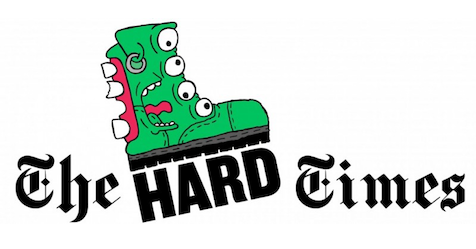CLAREMONT, Calif. — University student Lisa Dempsey discovered the latter half of her boyfriend’s copy of David Foster Wallace’s titanic novel “Infinite Jest” to be completely blank due to a printing error, according to sources who swear they’ve read the dense tome.
“I was waiting for Brian to finish a round of ‘Call of Duty’ so we could go out,” said Dempsey. “He always had this suspiciously pristine copy of ‘Infinite Jest’ on his coffee table, so I started flipping through it out of boredom and realized the words stopped about halfway through. Brian had boasted when we first met that he’d read and loved the book—this very copy, in fact. Right then, I knew he was full of shit and left without saying a word. It all makes sense now. When I initially asked him what the book was about, he gave me a summary that sounded awfully similar to the plot of ‘Air Bud.’”
The book’s publisher, Little, Brown and Company, admitted knowledge of the error.
“We realized the mistake right away,” said spokesperson Alison Dupree. “The latest edition of 75,000 books was indeed half-blank. Normally we would issue a recall, which would’ve been a massive loss on our part—but we decided to let it go and gamble that consumers would never even notice the misprint. People buy ‘Infinite Jest’ to put on display as more of a home accessory anyway. They never get near the halfway mark if they start reading it at all.”
Book industry consultant Karl Esper says that there are many more instances of publishing errors that go unnoticed.
“Mistakes happen,” said Esper. “But publishers are people, too—they get dispirited producing these highly intellectual books that they know no one’s ever going to read. To keep themselves entertained, they’ll work in little jokes here and there. For instance, the middle third of the latest edition of ‘Finnegans Wake’ was replaced entirely with scripts from the second season of ‘Young Sheldon.’ Mailer’s 1300-page ‘Harlot’s Ghost’ is another that goes mostly unread—a fun game is to see if you can find all 83 references to ‘Dunston Checks In’ that the publisher snuck in there.”
At press time, copies of Thomas Pynchon’s “Gravity’s Rainbow” were found to be hollowed out, with a publisher’s note suggesting the space could be used to conceal a flask or drug paraphernalia.




